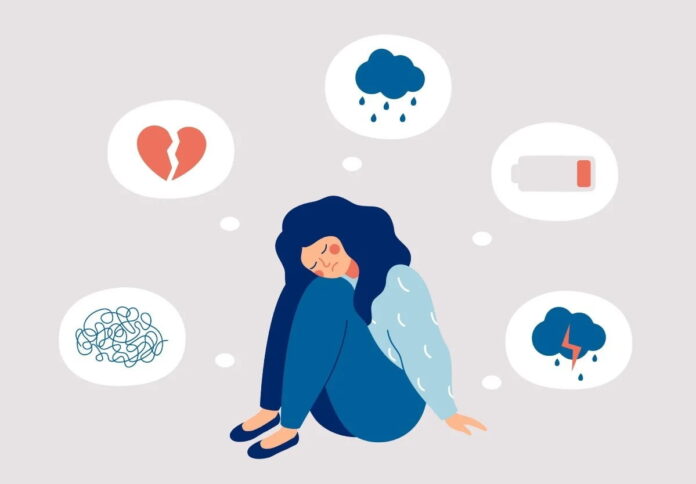In 2023, more people are reporting issues relating to chronic mental health. More specifically, there has been an increase in the number of people who have been diagnosed with depression and anxiety, which can lead to strained relationships, issues with work, and, of course, physical health issues.
If you have moderate or severe depression, you will likely need to seek the help of a doctor and a counselor or therapist to help you to manage the issue. But, if you feel that your depression is on the minor side of the scale, you may be looking for some effective self-help options before going into therapy.
So, here are some self-help options that can reduce the effects of minor depression.
Reflexology
Reflexology is a type of alternative therapy, and it involves applying pressure to areas on the feet, hands, or ears. It is based on the idea that these points correspond to different parts of the body and that applying pressure to them can promote healing and relaxation. Practitioners of reflexology believe that it can help to improve circulation, reduce stress, and alleviate pain.
Some people find reflexology to be a relaxing and therapeutic experience, while others may not notice any significant effects. It is generally considered to be safe, although it is important to choose a qualified practitioner who is trained in the appropriate techniques. So, look for a reflexologist near you if this sounds like something you might want to try.
Look After Your Diet
Do you feel worse in your mental health after a day of drinking coffee and not eating? That’s no surprise!
A healthy diet can be an important part of managing depression. Eat plenty of fruits and vegetables, as these foods are high in nutrients and antioxidants, and they can help to boost your overall health and well-being. Lean protein sources, like chicken, fish, beans, and tofu, can help to improve energy levels and brain function. Whole grains, like brown rice and quinoa, provide sustained energy and may help to improve mood. Try to limit sugars, as they can cause blood sugar to spike and crash, which can contribute to mood changes. Also, aim to drink at least eight 8-ounce glasses of water per day. Dehydration can cause fatigue and affect mood.
It’s also important to pay attention to portion sizes and to eat regular, balanced meals throughout the day. If you are struggling to make healthy eating choices, consider speaking to a registered dietitian or a mental health professional for guidance.
Exercise
Exercise can be a powerful tool for managing mild depression. Physical activity has been linked to improved mood, reduced stress, and boosted self-esteem. Exercise can also help to improve sleep and increase energy levels, which can be particularly helpful if you are feeling fatigued or low in energy due to depression. Why? Because exercise increases serotonin levels, dopamine, and adrenaline, all of which can boost mood and energy.
Just try and make sure that the exercise is a type you enjoy. Otherwise, you will be less likely to engage in it!
Read Also
- The Role of Ingredients in Your Skincare: What to Look ForSkincare works best when you understand what goes into the products you use daily. Ingredients form the foundation of every formula and determine how the skin reacts over time. Each cream, cleanser, or serum has its own role, determined by its ingredients. Learning what to look for helps you pick products that help skin and… Read more: The Role of Ingredients in Your Skincare: What to Look For
- Your Guide to Finding a Trusted DentistChoosing the right dentist in Sandgate or your area is crucial for maintaining good oral health and achieving a confident smile. With countless dental practices to choose from, patients may find the task daunting. Data from the American Dental Association indicates that there are over 200,000 practicing dentists in the United States, highlighting the importance… Read more: Your Guide to Finding a Trusted Dentist
- Achieving a Defined, Balanced Facial Contour in SingaporeA well-defined jawline and a gently tapered lower face — commonly referred to as a V-shaped face — is a look many people aspire to. In Singapore’s beauty and aesthetic scene, treatments that help refine facial contours have grown in popularity as more individuals seek subtle, natural enhancements that boost confidence and balance facial features.… Read more: Achieving a Defined, Balanced Facial Contour in Singapore
- The Wellness Blueprint: How Your DNA Holds the AnswerGenetic testing is revolutionizing preventive healthcare by offering insights into individual health risks. By analyzing DNA, these tests provide a personalized health blueprint that can guide lifestyle and medical decisions. This approach, often referred to as DNA wellness testing, helps to optimize health naturally and prevent potential diseases. In recent years, genetic testing has become… Read more: The Wellness Blueprint: How Your DNA Holds the Answer
- Exploring the Benefits of Infusion Therapy in OKC: The Ultimate GuideUnderstanding Infusion Therapy: A Deep Dive into Its Purpose and Process What exactly is Infusion Therapy? Infusion therapy is an advanced medical treatment that delivers medication and nutrients directly into the bloodstream through a vein, typically via an IV (intravenous) line. This method is particularly beneficial for patients who require a concentrated dose of medication,… Read more: Exploring the Benefits of Infusion Therapy in OKC: The Ultimate Guide






